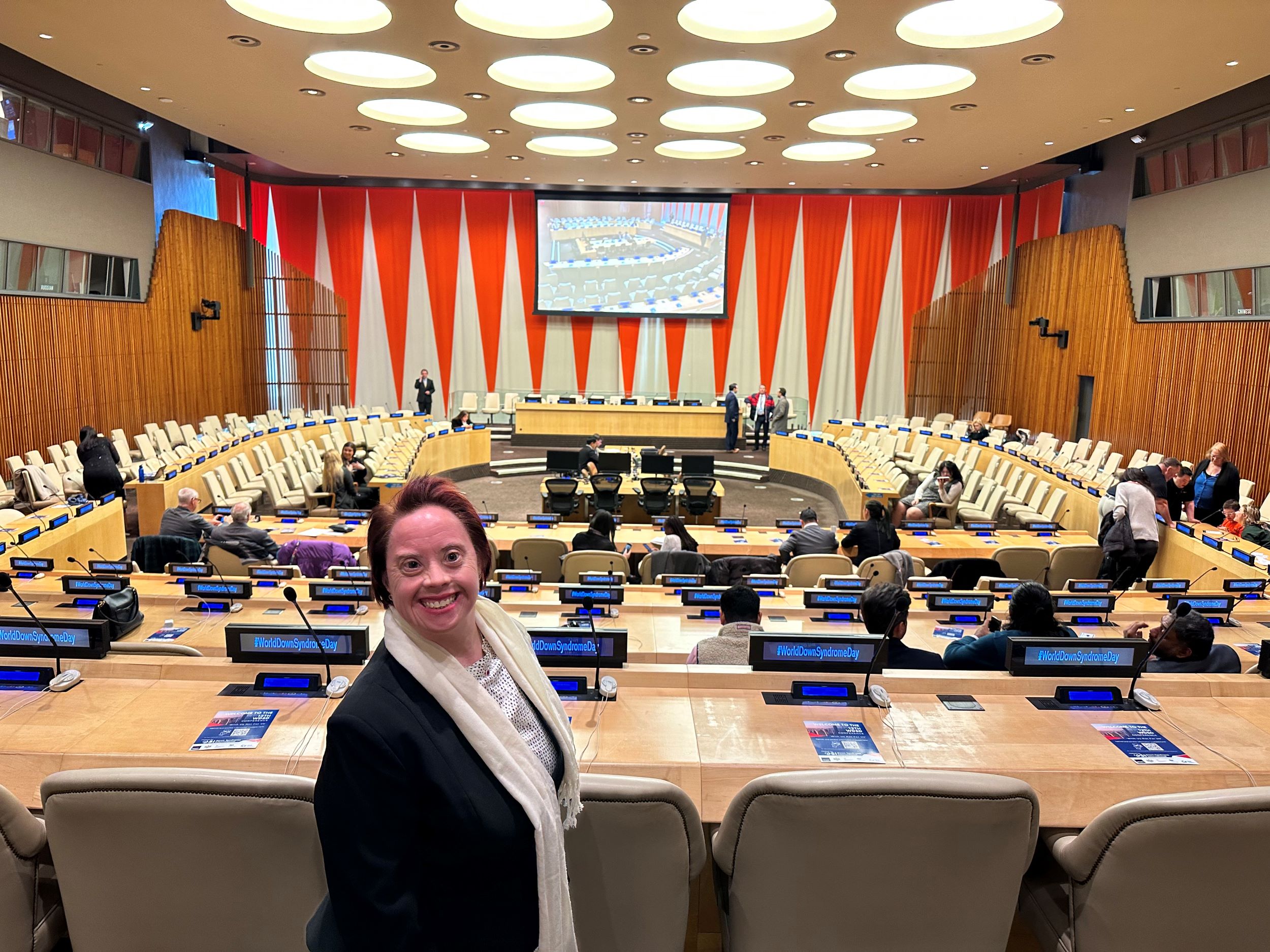
Kylie Scott to share her lived experience of Down syndrome
Public speaker and artist Kylie Scott, to share her United Nations speech at the Sydney Innovation and Research Symposium.

Kylie Scott recently presented her insights on the UN Convention on the Rights of Persons with Disability at the United Nations. Sydney Local Health District is proud to announce that in July, Kylie will share her UN speech at the Sydney Innovation and Research Symposium during Sydney Innovation Week.
Kylie is a passionate advocate for people with a disability who uses her voice and shares her lived healthcare experience with Down syndrome to promote a greater understanding of people with intellectual disability.
She describes being able to share her advocacy makes her feel like Wonder Woman. She is a member of our District's Disability Inclusion Action Plan Steering Committee and as an in-demand and influential keynote speaker. Kylie’s recent address to the United Nations was part of the UN World Down Syndrome Day Conference.
"I speak and advocate as a person with Down syndrome, an intellectual disability, which is different to people with physical disabilities because they can often speak for and understand situations themselves," she said.
Kylie will share her United Nations address about the rights of people with Down syndrome under the Convention on the Rights of Persons with Disability with hundreds of healthcare professionals, patients and community members at our Sydney Innovation and Research Symposium.
"For people with an intellectual disability, it is important that we are spoken to with respect and patience, and are asked the right questions so that healthcare practitioners understand our whole story," she said.
"In my experience, the National Disability Insurance Scheme is progressively assisting the health sector and healthcare practitioners to better understand that people with an intellectual disability have the right to the healthcare we need.
"It is not always easy to ensure that practitioners have the right understanding of our needs and that we leave appointments with the right understanding and knowledge of what is happening or has to happen."
Kylie explains that healthcare professionals could better support and meet the needs of patients with an intellectual disability by taking more time to understand their lived experiences and ensuring they provide information that is accessible, such as in the Easy Read language.
Accessible communication and information sharing has recently been discussed by the United Nations Conference of States Parties, a dialogue Kylie has closely followed.
"So much health literature and information are in an incomprehensible format, making it difficult to understand and get the help we need," she said.
"It is important to our health and wellbeing that our rights are recognised, respected and upheld by everyone and that we are empowered to exercise them.
"I'd like to see much more attention devoted to information sharing with people with intellectual disabilities in ways that are accessible to us."
Kylie Scott will address the Sydney Innovation and Research Symposium on Thursday, 20 July.